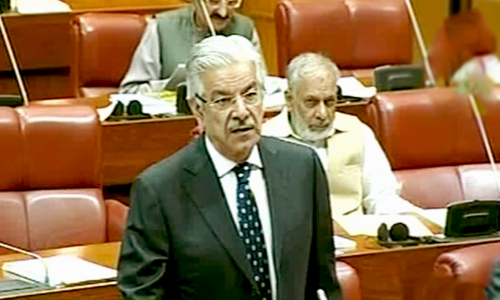
THESE are the best of times and the worst of times for Pakistan’s foreign policy. At one end is the dangerous security environment with the Afghan war radiating instability in the region and beyond, and militant groups posing a danger inside Pakistan.
At the other is China’s ambitious strategic outreach, the opening up of Central Asia, and a globalised economy that is fostering trade, investment and regional economic cooperation. In between, the emerging geopolitics cuts through both worlds.
There are thus exceptional threats and opportunities for Pakistan. We have not seen the present level of Indian hostility since perhaps the days of the Indian National Congress’s opposition to the idea of Pakistan.
The US is exploring punishments that go beyond sanctions. And Afghanistan is colluding with India to engage in acts of subversion and terrorism inside Pakistan.
But through its professional army and nuclear capability, Pakistan is strong enough to deter Indian aggression, and is capable of confronting any challenge from Afghanistan. And with its well-tested diplomacy Pakistan can withstand pressure from the US.
Why do these countries then continue to loom large in our daily lives as a threat numbing our thinking of alternatives to our present security paradigm that limits foreign policy?
Can we redefine a foreign policy that’s reached a dead end?
Yes, security should have high priority for any country that has not found deterrence but exclusive focus on security comes at a price.
If you have found a solution it is time to concentrate on the aspirations of the people for a better quality of life. Otherwise, you will continue to pursue extra security that you do not need, at a much higher cost, and to the people’s detriment.
There is a whole new world of economic opportunities around us. Indeed, there is a world beyond CPEC which does not exhaust the benefits that Pakistan’s resources and excellent geopolitical location offer. In fact, the new geopolitics makes us valuable to all, only if we have a creative foreign policy.
We must rethink our foreign policy beginning with an honest question: are we providing others with a rationale for hostility? Pakistan’s perceived links with militant groups and the Afghan Taliban are unfortunate.
There are serious internal security challenges and genuine complications in relations with India, Afghanistan and the US. Pakistan cannot befriend them unilaterally but have we tried? The reality is that the old paradigm of relating to these countries and the new world of economic opportunities have collided.
Afghanistan is being destabilised and is using India to hit back. We do not need to fight India in Afghanistan. India is there because it serves Kabul’s purposes. It is Afghanistan that Pakistan needs to worry about. An unstable Afghanistan means an unstable Pakistan which in turn jeopardises CPEC and Pakistan’s future.
We need to understand that a covert purpose of India’s unremitting hostility is to induce Pakistan to cling to those very policies that have inflicted harm on the country so that it can isolate itself.
Lastly, if we want to have no worry about our nuclear assets being seized by the US we should gear all our policies to strengthen Pakistan’s stability and economic future. Nobody can touch these weapons then. There have been international concerns about their fate in case the country descends into chaos. Prove them wrong by letting your stability do the talking.
How do we bring about a change in foreign policy? The foreign policy-making mechanism that virtually gives a veto to the security establishment on policies on India, Afghanistan and the US cannot preside over change.
These policies reinforce the civil-military imbalance but it appears that the civilian rulers feel that the price of this equation is worth paying since their own way of running Pakistan is no better.
It is time to find a new way of bringing about a change in outlook. What is in evidence is enormous talent within the country. There are academics, journalists, authors (many of them internationally acclaimed), retired public servants — civil and military — who all have shown extraordinary knowledge of foreign affairs.
The need is to form a commission of some of these eminent people. Let them work for six months, mull over issues, and interview various segments of society including legislators, leaders of public opinion, educators, serving and retired officials in the foreign and defence policy establishment, and business community.
The commission should come up with a critique of existing policies and recommendations for change to be fully publicised by the media. Even if it does not lead to a policy change, the public would become aware of alternatives to the present foreign policy that seems to have reached a dead end.
The writer, a former ambassador, is adjunct faculty Georgetown University and Syracuse University.
Published in Dawn, February 20th, 2018














































